German films have had an eventful and strenuous journey from the Silent Era to modern times. After the First World War, German directors were at the forefront of cinematic reinvention. The German Expressionist movement gave birth to some of the most influential movies of all time, practically inventing the horror genre. During this time, masters like Fritz Lang, F.W. Murnau and Robert Wiene took over the film world with their brilliant techniques and ideas.
In the decades after, Germany gave us many other masterful filmmakers but most of them were to leave the country due to Hitler’s rise. However, the industry saw a rebirth after the Second World War with the arrival of Werner Herzog, R.W. Fassbinder and others. With all that said, below is the list of top German movies ever. You can watch some of these best German movies on Netflix, Hulu or Amazon Prime.
18. 71 Fragments of a Chronology of Chance (1994)
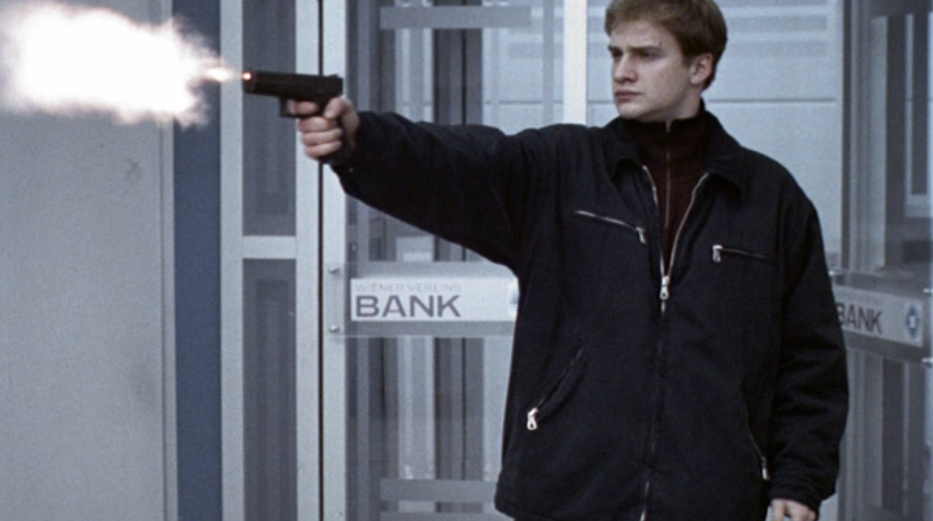
Austrian auteur Michael Haneke is arguably the greatest filmmaker working in cinema today. His films explore alienation among upper class society, violence and racism. ’71 Fragments of a Chronology of Chance’ is far from his best work, but it has several unforgettable moments and you can see the filmmaker slowly building his cinematic vision and getting lose to realizing it. The film depicts several seemingly unrelated events involving different people, whose lives intersect towards the end of the movie.
If you go in expecting a gory thriller, then you’ll be completely disappointed. It’s more of a philosophical exploration of violence that exists at different levels in modern society. It’s certainly a difficult watch, but it’s one that makes you think about a lot of things in general about the society and human lives. It’s almost like reading a newspaper, in the sense that you get an objective view of several shocking incidents happening across the world that have no meaning. The painful reality is that these things do really happen — they happen around us, sometimes right in front of us; but we conveniently choose to close our eyes, every time. Haneke makes an attempt to get us closer to confronting the brutal realities of our existence, and the result is a shocking but deeply immersive cinematic experience.
17. Benny’s Video (1992)
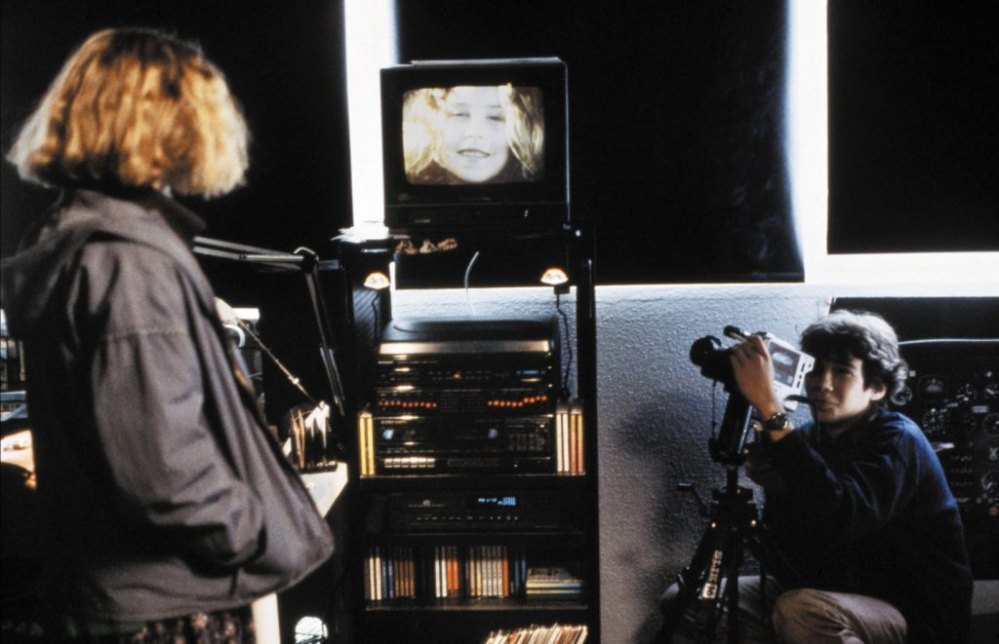
Not among Haneke’s greatest works, but ‘Benny’s Video’ is still a fine piece of cinema that explores the numerous facets of violence. It tells the story of its titular character, a 14-year-old boy who loves watching extremely violent, gory videos. He once invites a girl over to his house when his parents are away and they together watch a video of a pig getting slaughtered. He later kills the girl using a slaughtering gun.
The film suffers from pacing issues and meanders in the second half, but there’s one scene in the middle that truly defines Haneke’s vision as a filmmaker. The girl’s murder scene is brilliantly shot: we don’t see her; there’s no blood onscreen. All we hear are screams and sounds of the gunshots. Despite the violence happening entirely off-screen, we are terrified, because what Haneke does here is he lets us imagine the horror of the moment. For people looking to explore the oeuvre of this legendary Austrian filmmaker, this might be a good starting point that will help you get an idea of his philosophy on violence and the influence of technology on modern society.
16. The Seventh Continent (1989)
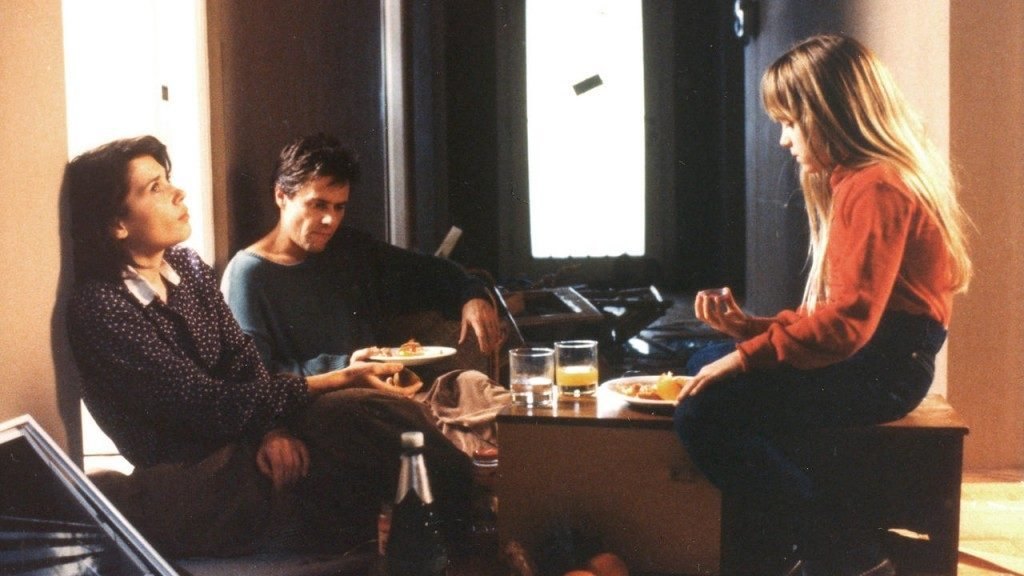
Horror is an interesting genre. It is amazing how much we, as viewers, have been desensitized to the horrors of violence and gore, due to our years and years of consuming serial killer movies and slasher flicks. Michael Haneke was absolutely right when he said that there is no limit to what cinema can show. And with this film, his directorial debut, he proves that true horror lies in the unknown, the hidden. ‘The Seventh Continent’ tells the story of an upper-middle-class alienated Austrian family who, tired of their painfully mundane lives, decide to move to Australia in search of a better life, but ultimately end up killing themselves.
The film is highly minimalistic as Haneke focuses more on the characters’ feelings than their words. It’s an unflinching look at a family’s shocking meltdown. Haneke, as you’d expect, does not offer solutions or provide a reason for the family committing suicide. He just observes them from a distance and lets us contemplate and ponder over things that could possibly have gone wrong with these people. It’s just masterful filmmaking.
15. Downfall (2004)
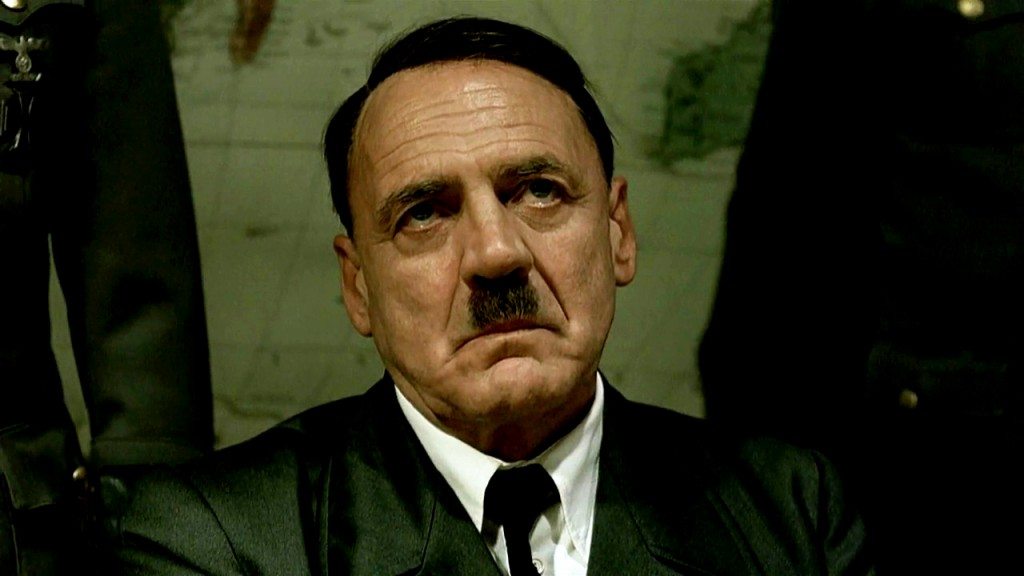
‘Der Untergang’ or ‘Downfall’ is probably one of the most instantly recognizable German movies of the modern times. Nominated for Best Foreign Film at the Oscars, it presents the final days of Adolf Hitler in his bunker, from his secretary’s eyes. The movie shows the collapse of Nazism and Hitler’s unrelenting madness in the face of dying hope. However, what sets it apart from the other World War II films is its objectivity. It shows us ‘human’ Nazis – people in flesh, blood and soul, but with vicious ideas in their heads. This portrayal may be the closest we can get to seeing the Hitler that the German people saw. In this regard, this movie is reminiscent of other such ‘partly human’ renditions of Nazis like ‘Das Boot’ and ‘Judgement at Nuremberg’.
Powered by excellent performances, ‘Downfall’ recreates Hitler’s Berlin bunker in all its turmoil at the close of the War. Nevertheless, Hitler seems hopeful of a ‘miracle’, a turnaround in the War, planning counter-offences with an army that isn’t there. His trusted comrades start falling apart but many still believe in their Fuhrer, including his secretary Traudl Junge. But outside the bunker, in the real world, Berlin is devastated and so is National Socialism. The movie features some especially strong scenes when top Nazi officials start facing voluntary deaths, with Hitler following suit.
14. Run Lola Run (1998)
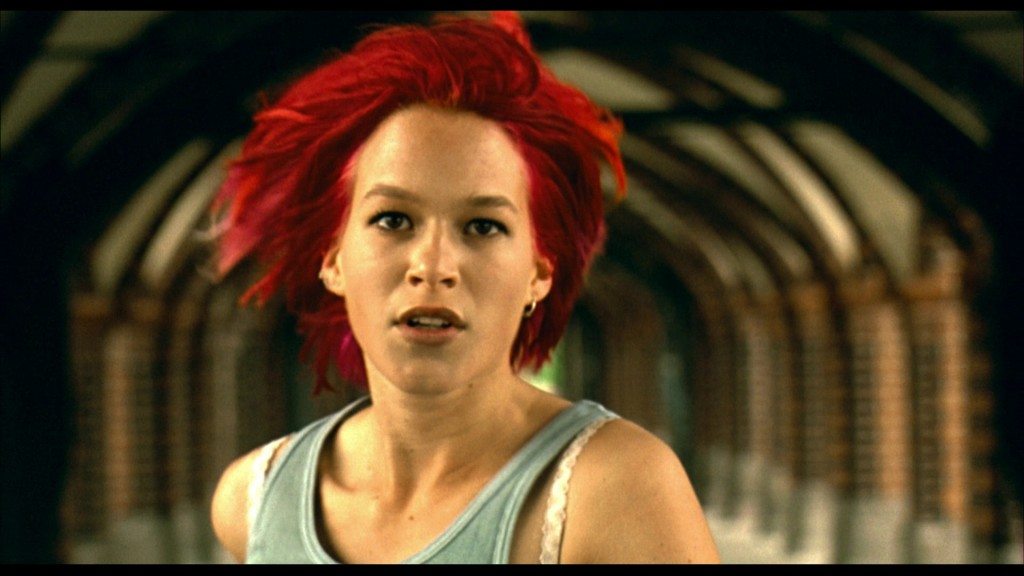
‘Run Lola Run’ is a thriller like no other. The film is super-vibrant and energetic, aptly for its title, and is filled with cinematic techniques and moments that are now regarded as clichés. It has an interesting plot involving Lola and her lover, Manni, who loses a lot of money that belongs to a gangster. He calls Lola, telling her that if he doesn’t find 1,00,000 deutsche marks in 20 minutes, he is a dead man. So, Lola starts running. The story beyond this is told in three different and independent possibilities of what ensues on Lola’s runs. All three runs take place with slight differences that have big consequences on the outcome. Even the resulting effects on minor, secondary characters is foreseen. ‘Run Lola Run’ leaves an indelible mark on the minds of the viewers as it has several memorable moments – from animation, to flashbacks, to instant replays. Ardent lovers of breathless thrillers can not afford to miss this movie.
13. Pappa ante Portas (1991)
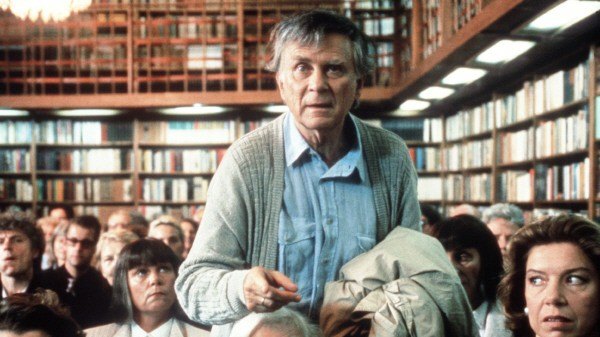
‘Pappa ante Portas’ is arguably the best German comedy of all time. There are very few such movies that offer a subtly humorous take on the extraordinary predicaments of its characters; one that comes to mind is Milos Forman’s ‘Hori ma Panenko’. In this film, we follow a manager who is forced to retire after he orders 40 years’ supply of typewriting paper and eraser, because of a bulk discount. Now that he is out of a job, he can spend a lot more time with his wife and teenage son. But surprisingly, we learn that they are not exactly happy about this. Our manager, clutching onto his old life, starts managing his household with his idiosyncrasy intact. He buys massive amounts of mustard, and even sets up shooting of a TV show in their home but ends up getting in further conflict with his family. The movie is a wholesome entertainer that guarantees a fresh sense of humour.
12. Wings of Desire (1987)

The New German cinema movement gave birth to Wim Wenders and paved the way for this brilliant art-house fantasy film. One of the most widely known German movie worldwide, ‘Wings of Desire’ is a definite must-watch. The film follows angels in divided Berlin as they look over the city’s inhabitants. However, while they listen to the intricate unrest in humanity’s minds, they are unable to control their actions. In this intriguing setting, there develops a most sublime and poetic romance between one angel and a circus trapeze artist. When he finally becomes a human, the movie changes from black-and-white to color, furthering its evocative quality.
‘Wings of Desire’ is a highly stylized movie that plays out almost lyrically. The cinematography is exquisite. The film has an unmistakable aesthetic that lingers on the viewer’s mind long after its over. The dialogue too is almost poetic, and further, the way it is delivered by the characters onscreen feels sentimental and contemplative.
11. Toni Erdmann (2016)
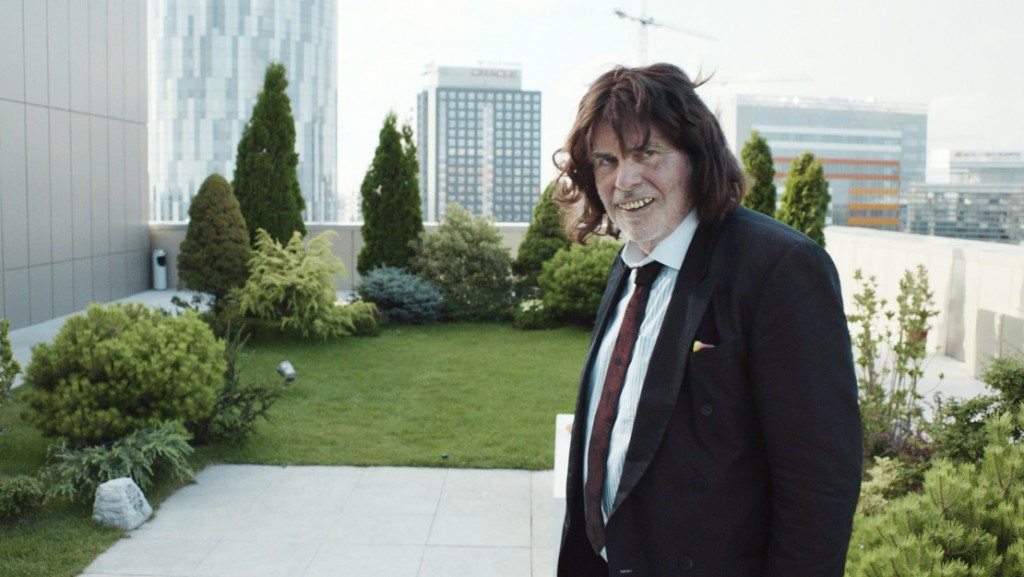
This internationally acclaimed comedy deserves a place on this list, especially because it has reestablished Germany on the worldwide movie map. Nominated for the Best Foreign Language Film Oscar, ‘Toni Erdmann’ is a brilliant in its originality and unpredictability. We follow a father-daughter duo as he plays inane practical jokes on her, while she tries hard to maintain her corporate lifestyle. You can find several absurdist comical incidents in this film that display a fervent, yet hysterical critique of modern mechanistic life. Its characters are far from the traditional one-dimensional ones in movies, constantly surprising us with their actions.
There are many scenes from this film that resonate with us, some of them so outrageously honest that we don’t know whether to laugh or cry. A scene that remains impressed on the mind is when the two protagonists wait for an elevator, with nothing to say to each other. The moment becomes awkward and uncomfortably silent. With its wonderful performances and thematic depth, ‘Toni Erdmann’ can easily be considered one of the finest German flicks of recent times.
10. The Cabinet of Dr. Caligari (1920)
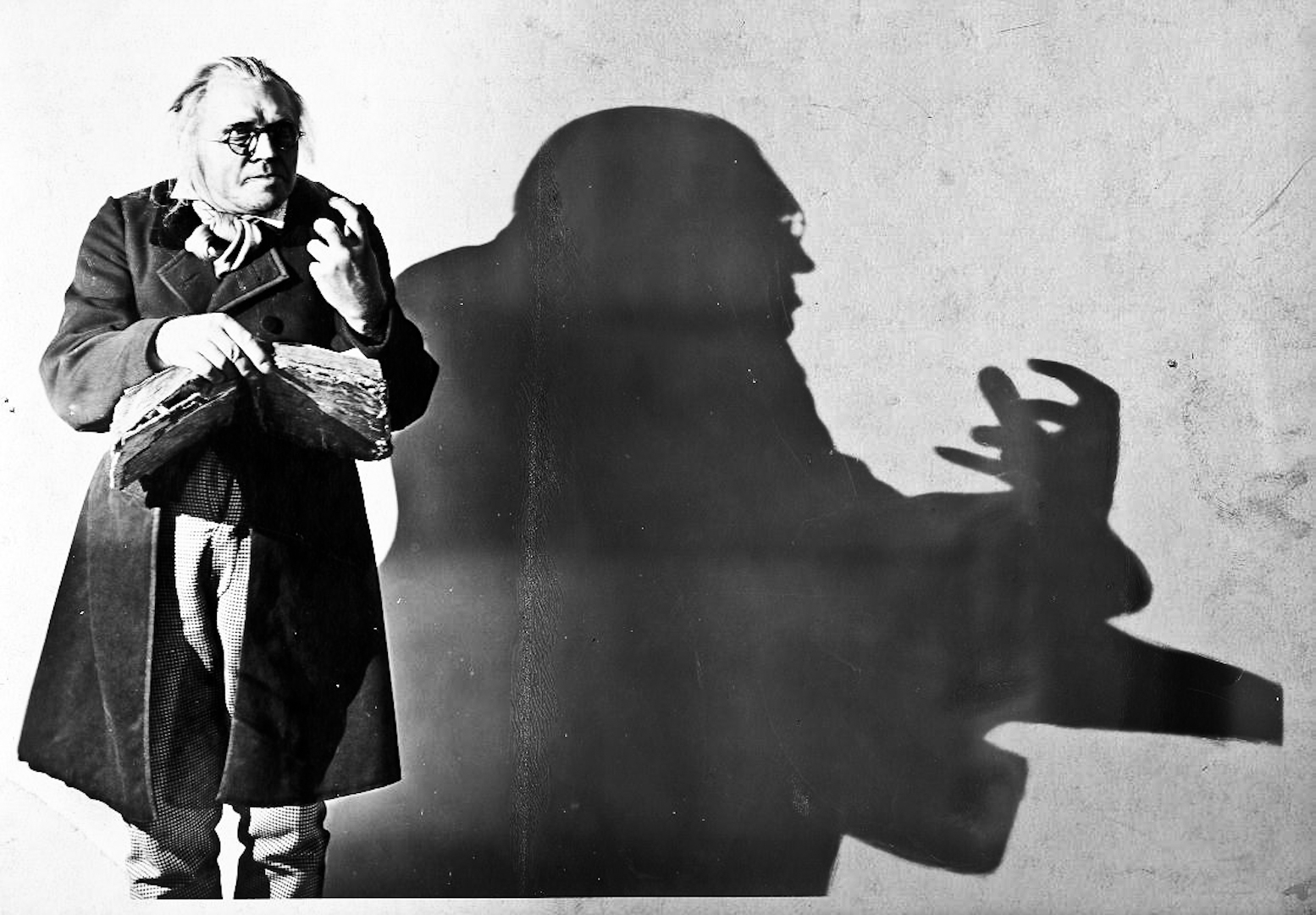
This fantastical horror masterpiece by Robert Wiene has come to be regarded as one of the most influential silent era films. This film along with other Expressionist works like Murnau’s ‘Nosferatu’ and Carl Theodor Dreyer’s ‘Vampyr’ laid the foundations for the horror genre. It follows a fervent hypnotist, Dr. Caligari, who is influenced by a medieval manuscript to use a somnambulist, Cesare, to commit murders. This somnambulist, a man in a coffin, has been asleep for 23 years. When some murders occur around the fair where the doctor displayed his exhibit, suspicion falls on Cesare. What ensues thereafter is a somewhat absurdist tale. The world created in ‘The Cabinet of Dr. Caligari’ isn’t realistic — because it doesn’t want to connect with reality; it tries to embrace nightmares!
9. Head-On (2004)

In a genre like romance-drama, exaggerated emotions, melodrama and cliches rule. However, Fatih Akin’s ‘Head-On’ uses all these elements to great effect. The story has strong undertones of melancholy and pathos. A suicidal young girl and a much older addict cross paths in a mental institution. Out of the blue, she offers to marry him, looking to gain freedom from her conservative family. The man, who has been grieving ever since he lost his wife, agrees and they get married. Then, they fall in love. But, this isn’t how the movie ends – rather, it virtually begins here.
The couple lived together, but apart from that they had independent lives. But, once they fall in love, things complicate. Without revealing much, one of them ends up in jail and the other flees to Istanbul. Even in the end, ‘Head-On’ steers well clear of a traditional feel-good ending. This is a wonderful watch and undoubtedly one of the best German movies ever.
8. The Enigma of Kaspar Hauser (1974)
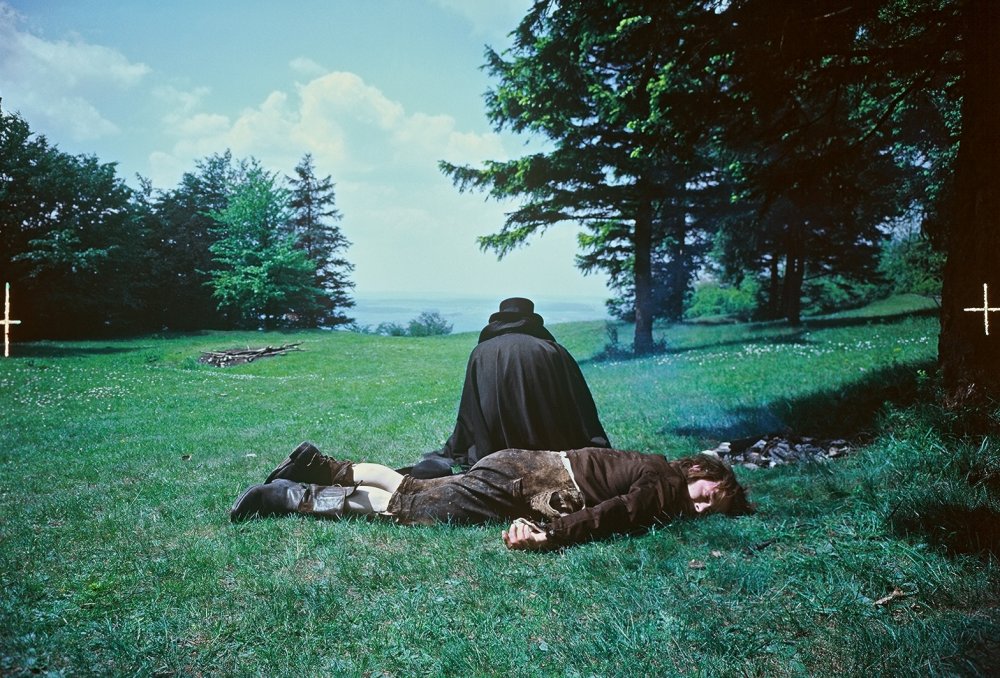
Another one of Werner Herzog’s masterpieces, ‘The Enigma of Kaspar Hauser’ is based on a mysterious real occurrence. In 1828, a peculiar young man, Kaspar Hauser, suddenly appears in Nuremberg, clutching a Bible and an anonymous letter. He is barely able to walk or talk. The film shows us that for the first 17 years of his life, Kaspar Hauser was kept captive in a cellar by a man in a black overcoat and a hat. Kaspar creates much curiosity in the town’s inhabitants and ends up in a circus. But he is taken away by a professor who attempts to normalize him. He learns to read, write and play the piano, which gives him immense pleasure.
The plot itself is intriguing, to say the least. Kaspar Hauser becomes the subject of much study with his unusual views and strange ideas. Bruno S., the actor who plays Kaspar, was an enigma himself, having spent 23 years locked in a mental institution. He gives Herzog just what he wants for this film. ‘The Enigma of Kaspar Hauser’ is regarded as one of Herzog’s greatest films, which is high praise considering his stature.
7. The Lives of Others (2006)
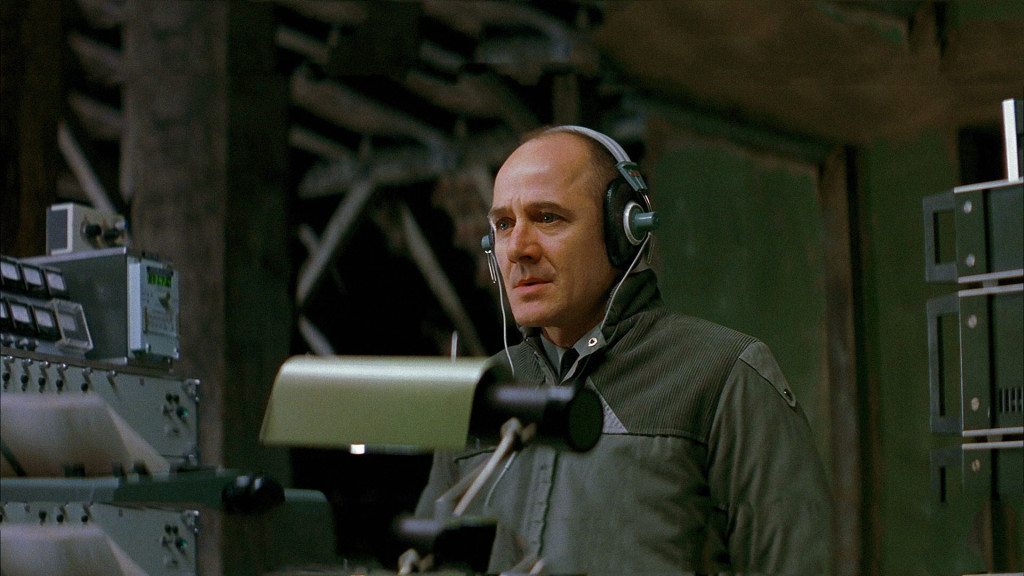
This film is undoubtedly one of the best political drama/thriller movies ever. Centered on surveillance in the totalitarian Communist regime of East Berlin, the movie is passive yet highly gritty. A secret agent listening in on a writer’s conversations with his lover becomes increasingly obsessed with their lives. For the most part, ‘The Lives of Others’ maintains an eerie tone, silently presenting the story. This method of the film creates an apt atmospheric effect. But then we witness the eavesdropper going deeper and deeper into a trance, eventually becoming worried for his victims. The movie delivers a great climax, made obtrusive by the otherwise hushed scenes. ‘The Lives of Others’ is an absolute must-watch movie, particularly for thriller fans.
6. Das Boot (1981)
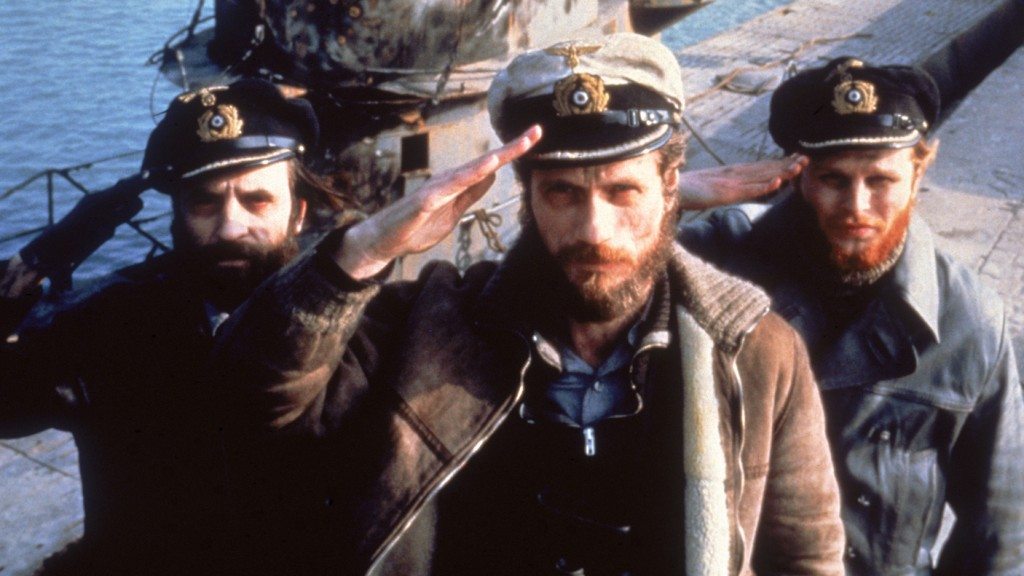
One of the best war movies ever made and one of the very few that show a German perspective of World War II, ‘Das Boot’ is probably the nearest cinema has ever come to show an authentic account of warfare. War is not about cheap cinematic heroism or cross-country love stories; war is hell and hell is not pretty at all – this is what most people will take away from ‘Das Boot’. We follow the cramped, suffocating trail of a German U-boat travelling underground to find and destroy Allied ships. The life of the crew is shown with great effect – bad food, claustrophobia and the terror of imminent death.
The movie had two releases – one shortened theatrical release and a considerably longer, and better, director’s cut. Being from a German point of view, the movie avoids evoking cliched sentiments of War films. We simply understand how a U-boat worked; how filthy and degraded lives soldiers lead during War; and how real the threats are.
Read More: Best Chinese Movies
5. Ali: Fear Eats the Soul (1974)

Rainer Werner Fassbinder was as prolific as any other filmmaker, rising to prominence during the New German cinema movement. He has helmed many great movies, and ‘Ali: Fear Eats the Soul’ is right there at the top. This movie is full of pathos, and is quite evocative with its deep understanding of certain human traits. It revolves around the forbidden love story of an aged German woman and a Moroccan migrant worker. As if their romance wasn’t appalling enough for the society, they are impulsively compelled to marry, making them virtual outcasts in the ‘sane’ world they inhabit. We follow their arduous journey back and forth into the narrow-minded society. They are ostracized for their ‘disturbed’ nature but welcomed when it is convenient or profitable for people.
The film presents an extremely cynical view of humanity. The woman’s own children are least willing to understand, let alone accept, her choices. She is seen as a sex-starved lady. ‘Ali: Fear Eats the Soul’ was shot in just 15 days on a tiny budget. It is now regarded as one of Fassbinder’s masterpieces.
Read More: Best Japanese Movies
4. The White Ribbon (2009)

Michael Haneke‘s ‘The White Ribbon’ is, without a doubt, one of the best films of the last decade. Perhaps the greatest virtue of this film is its aesthetic charm, its beautiful cinematography. Shot in black-and-white, this film is much more expressive than most color movies that are churned out across the globe. Its setting is a tiny German village before the First World War where mysterious and strange events start occurring abruptly. Accidents happen; people get seriously wounded; some die; children are found tortured badly. This creates great confusion among the people – Is there a connection? Is someone doing them deliberately? Who? Why? None of these questions are answered in ‘The White Ribbon’. But what it leaves us with is a thicker plot.
The seemingly simple and righteous villagers are not as moral as they think they are. The village, while functional, has an underbelly of dark secrets and moral rot. Michael Haneke has a terrifying view of ‘ordinary’ people whom he portrays as not only immoral but also stubborn enough to never look at themselves. Nevertheless, ‘The White Ribbon’ is an unmissable movie that deserves to be seen for its aesthetic beauty alone.
Read More: Best Spanish Movies
3. Metropolis (1927)
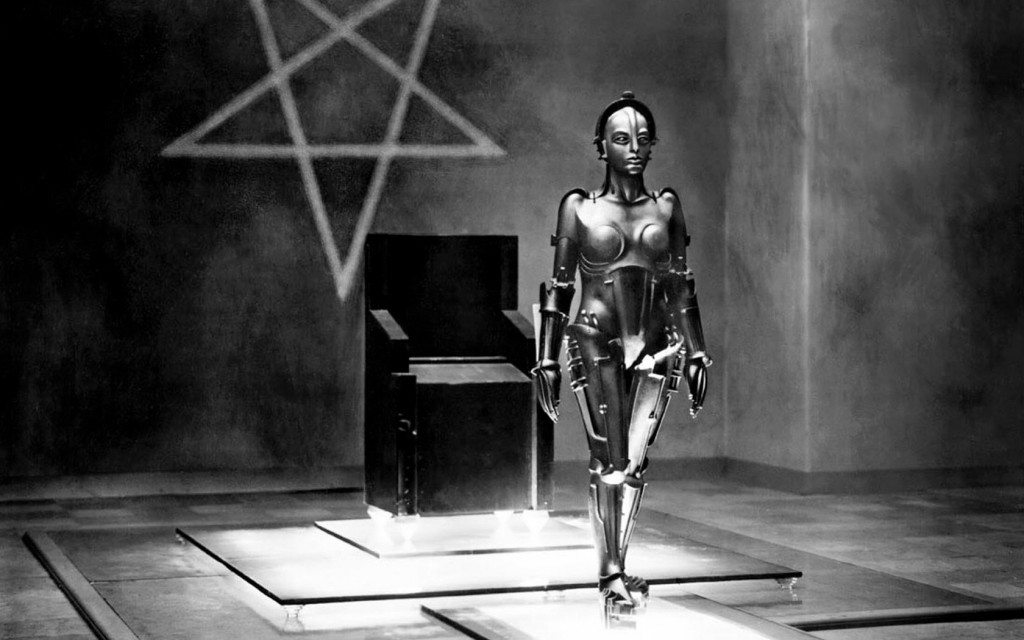
‘Metropolis’ is one of the most revered and well-known silent films. Made during the peak of the Expressionist movement in German arts, at the time of the liberal Weimar Republic, this film birthed the sci-fi genre. With its stunning special effects and its great visual appeal, this film still remains a good watch today. It is set in a city in the distant future which is divided on a class basis – workers live underground, planners overground. With ‘Metropolis’, Lang envisioned the evils of exponential technology-driven growth and portrayed the future as a grim mechanized world. This impression of machine-grown dystopia is still seen in almost every science-fiction movie.
The film follows the attempts of Freder, the city ruler’s son, and his lover Maria, a worker, to overcome the massive class gap in their world. ‘Metropolis’ is among the very rare films that revolutionized an entire genre. It inspired several generations of filmmakers. While watching it one feels that the beginnings of cinema were not so ‘humble’ or resource-less after all.
Read More: Best Italian Movies
2. Aguirre, the Wrath of God (1972)
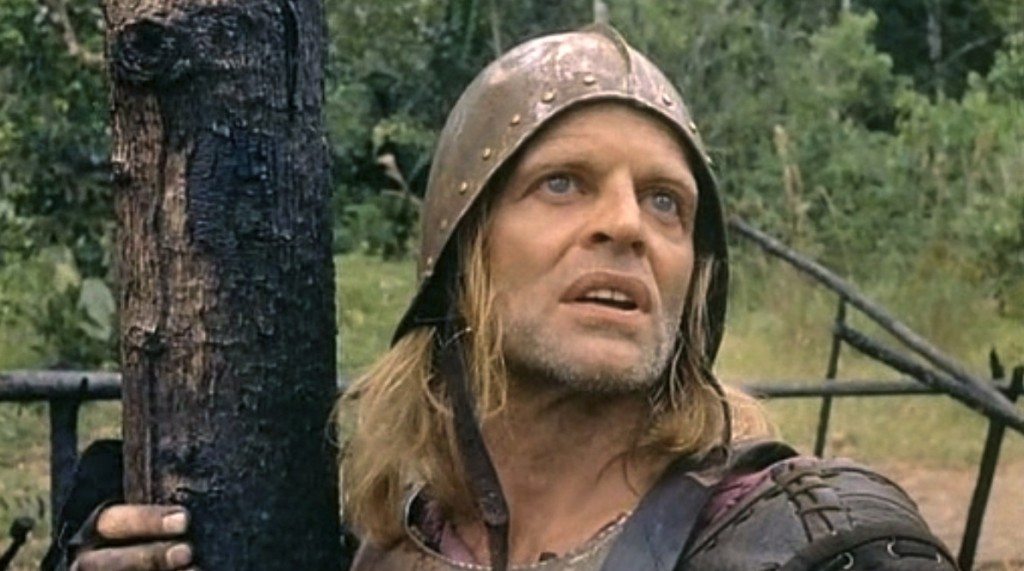
Werner Herzog is certainly among the very best directors of all time. He has made countless brilliant movies, with each of them equally deserving to be on this list. Some of these films are ‘Fitzcarraldo’, ‘Stroszek’ and ‘Nosferatu the Vampyre’. However, ‘Aguirre, the Wrath of God’ is Herzog’s towering accomplishment. The film follows a group of 16th century soldiers and their many slaves on their expedition down the Amazon river, in search of El Dorado, the legendary city of gold. A part of the group is led by Lope de Aguirre, a ruthless oppressor and whose savagery knows no bounds. From the first shot itself, the film establishes that these men are descending into doom.
‘Aguirre, the Wrath of God’ shows a conflict between man’s greed and Nature’s might. Dialogue is reduced to a bare minimum in the film, that too improvised, and we are plunged into the hopeless terror of the jungle on the mighty river. The incidents that occur in the film, mostly at Aguirre’s hands, are unbelievable in their moral decay. Eventually, we see that Aguirre has nobody to obey him or to listen to him except corpses and monkeys.
Read More: Best Mexican Movies
1. M (1931)

Fritz Lang was among the earliest masters of cinema and ‘M’ is one of the most influential movies ever made. It is a highly intriguing, unique film that has stunningly stood the test of time. This was Lang’s first sound film, after having seen success in the silent age with ‘Metropolis’. The plot itself is alluring: hit by the increased police activity and searches, Berlin’s criminals join in the frantic manhunt for a child killer. However, the real genius behind ‘M’ is in Peter Lorre’s performance, the film’s cinematic execution and vision rather more than its plot. It is a brave attempt at portraying a sick, depraved man as a human being after all.
Watching it today, it is as provocative, ghastly and dramatic as ever. The film is a scathing satire on the city’s workings, showing how conveniently humans appropriate morals to their benefit. However, ‘M’ doesn’t exonerate its villain by showing how helpless he is. It doesn’t want to make us like the killer; it simply wants us to believe that he doesn’t like himself either. The expertise of Lang in using his camera to deliver shock, suspense and thrills is displayed here. And for his first sound film, his audio doesn’t miss its mark. Do yourself a favor and watch this movie today!
Read More: Best German Movies on Netflix

You must be logged in to post a comment.